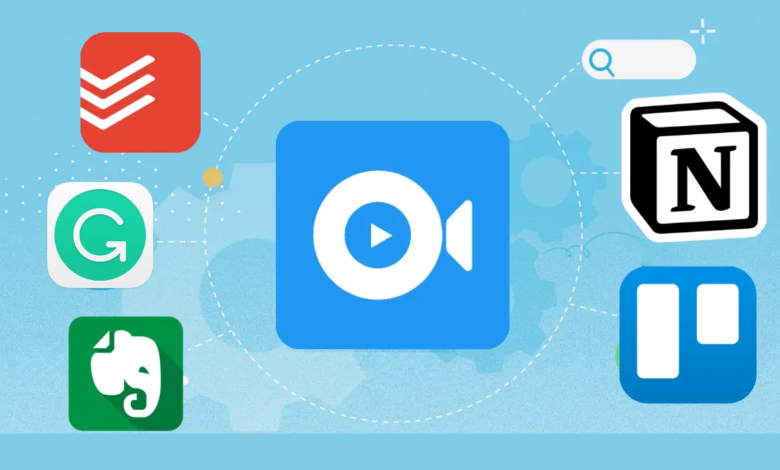Best Tools and Apps for Enhancing Your Study Routine in 2024
Transform your Study Routine with the best tools and apps of 2024. Discover innovative solutions to boost productivity and learning efficiency.

A well-structured Study Routine is the backbone of academic success, enabling students to effectively manage their time, grasp concepts, and retain information. In an era dominated by technology, tools and apps have become indispensable in streamlining this process. These digital aids cater to various learning styles and needs, making it easier to stay organized, focused, and motivated.
Whether you’re preparing for exams, completing assignments, or diving into complex subjects, incorporating the right tools into your Study Routine can make all the difference. This guide delves into the most effective apps and tools of 2024, highlighting their features, benefits, and how they align with different academic goals.
The Importance of Technology in Modern Study Routines
Technology has revolutionized education by introducing innovative solutions that cater to diverse learning preferences. Tools and apps designed for academic purposes help bridge the gap between traditional methods and modern demands.
How to Choose the Right Tools for Your Study Routine
Selecting the right tools depends on your specific academic needs. Evaluate apps based on user reviews, compatibility with your devices, and their alignment with your learning objectives.
Organization Apps for a Streamlined Study Routine
Organization is key to an effective Study Routine. Calendar apps, to-do lists, and task managers like Trello and Notion keep your study schedule structured and manageable.
Note-Taking Tools for Efficient Information Management
Digital note-taking tools such as Evernote and OneNote allow students to create, organize, and access notes effortlessly, enhancing their Study Routine.
Flashcard Apps for Memory Retention
Flashcards are a proven method for boosting memory. Tools like Anki and Quizlet digitize this process, making studying more interactive and effective.
Collaboration Platforms for Group Study Sessions
Group study sessions can be more productive with collaboration tools like Microsoft Teams and Google Workspace, which facilitate seamless communication and resource sharing.
Time Management Apps to Optimize Your Study Routine
Managing time effectively is critical for academic success. Apps like Toggl and Clockify help track study hours and maintain focus.
Distraction-Blocking Apps for Uninterrupted Focus
Distractions can derail even the best Study Routine. Apps like Forest and Freedom block unnecessary interruptions, creating an environment conducive to learning.
E-Book Readers and Library Apps
Access to academic resources has never been easier with e-book readers like Kindle and library apps such as Libby. These tools enhance your Study Routine by providing instant access to learning materials.
Mind Mapping Tools for Better Idea Visualization
Mind mapping tools like XMind and MindMeister help organize thoughts and concepts visually, aiding understanding and memory retention.
Productivity Trackers for Continuous Improvement
Apps that monitor productivity, such as RescueTime, provide insights into how you spend your study hours and suggest improvements for your Study Routine.
Online Learning Platforms for Flexible Studying
Platforms like Coursera and Khan Academy offer courses and tutorials that complement your Study Routine, allowing you to learn at your own pace.
AI-Powered Study Assistants
AI-driven tools like Grammarly and ChatGPT refine your writing and provide instant answers, making them invaluable for your Study Routine.
Gamification Apps to Make Studying Fun
Gamified applications such as Duolingo and Habitica transform the process of learning into an enjoyable and interactive experience. These apps incorporate elements of gaming, such as points, levels, and rewards, which make the act of studying more entertaining. For instance, Duolingo makes language learning fun by allowing users to earn points and unlock new levels as they complete lessons. This approach not only captures users’ attention but also encourages them to engage more consistently with their studies.
Habitica, on the other hand, turns everyday tasks and goals into a quest. Users create a character and earn rewards for completing real-life tasks, which promotes motivation and helps build good habits over time. By turning learning and task management into a game, these apps increase users’ motivation to learn and stick to their study routines. Both Duolingo and Habitica showcase how the integration of gamification can enhance the learning process, making it easier for individuals to stay committed to their personal and educational goals.
Language Learning Tools for Multilingual Students
For individuals who are learning new languages, various tools such as Rosetta Stone and Babbel have proven to be incredibly helpful. These programs are designed to fit easily into any study routine, making them accessible for anyone at different levels of language learning. Rosetta Stone offers a series of lessons that are organized in a structured way, allowing learners to progress at their own pace. The interactive elements of the platform keep users engaged and motivated, as they practice speaking, listening, reading, and writing in their new language.
Similarly, Babbel provides a variety of lessons that are also interactive and easy to follow. Its focus on real-life conversations helps learners understand how to use the language in practical situations. Both Rosetta Stone and Babbel encourage regular practice, ensuring that users can incorporate their language learning into their daily lives without feeling overwhelmed. These tools not only make learning a new language more enjoyable but also more effective by providing the structure and support needed to build confidence and skills over time.
Health and Wellness Apps for Balanced Studying
Maintaining mental and physical well-being is crucial for a productive Study Routine. Apps like Calm and Headspace support mindfulness and stress management.
Cloud Storage Solutions for Academic Resources
Cloud services such as Google Drive and Dropbox ensure that your notes, presentations, and resources are accessible anytime, enhancing the efficiency of your Study Routine.
Customizable Tools for Personal Study Routines
Customizable applications such as ClickUp provide students with the ability to adjust and modify their Study Routines to better align with their individual academic requirements and personal preferences. These tools enable learners to create a study plan that suits their specific learning styles, subjects, and schedules. By offering various features and options for personalization, ClickUp makes it easier for students to stay organized and focused on their studies. They can set goals, track their progress, and manage their time more effectively, all while ensuring that the study methods they choose resonate with how they learn best. This level of customization not only enhances their study experience but also helps them achieve better academic results by allowing them to work in a way that is most effective for them.
Embracing Emerging Technologies in 2024
Technological advancements are increasingly becoming part of educational environments, with tools like virtual reality (VR) and augmented reality (AR) playing a significant role. These technologies provide students with unique and engaging ways to learn by creating experiences that feel real. For example, virtual reality allows students to explore places and situations that they could not visit in person, such as historical events or outer space. They can interact with 3D environments and gain a better understanding of complex topics through firsthand experiences. On the other hand, augmented reality enhances the real world by adding digital elements to it. Through the use of AR, students can see digital information layered over their physical surroundings, making lessons more interactive and exciting. This approach not only helps increase student engagement but also improves retention of information by providing visual and hands-on experiences. As these technologies continue to develop and integrate into classrooms, they are transforming traditional education methods and creating more dynamic and immersive learning opportunities for students.
The Future of Study Routines
Technology is always changing and improving, which means we can expect to see even more new and exciting tools and applications in the future. These advancements in technology will help students and learners to create study routines that are not only effective but also enjoyable. With each new tool or app that comes out, there are more options available to make studying easier and more interesting. This means that students can find ways to learn that suit their individual needs and preferences. As technology continues to evolve, it will provide new resources that can keep learners motivated and engaged in their studies, helping them to achieve their educational goals while making the process more dynamic and fun. The future holds great promise for enhancing the study experience through innovative technological solutions that cater to various learning styles and challenges.
Read More: Best Tools and Apps for Enhancing Your Study Routine in 2024
Conclusion
Creating an effective Study Routine in 2024 involves integrating the right tools and apps to meet academic demands and personal learning preferences. These digital solutions not only streamline study processes but also boost productivity, making education more accessible and enjoyable. From time management and note-taking to distraction-blocking and collaborative tools, the options are vast and ever-evolving.
As you explore these tools, remember that the key lies in consistency and adaptability. By staying open to new technologies and regularly assessing your needs, you can refine your Study Routine and achieve your academic goals with greater ease and efficiency.
FAQs
1. What is a Study Routine, and why is it important?
A Study Routine is a structured schedule for academic activities. It helps maintain focus, manage time, and improve learning outcomes.
2. How can apps enhance my Study Routine?
Apps provide tools for organization, time management, and collaboration, making it easier to study efficiently and consistently.
3. Are free tools effective for a Study Routine?
Many free tools like Google Workspace and Quizlet offer robust features that cater to various study needs without additional costs.
4. Can these tools work offline?
Some apps, like Evernote and Kindle, offer offline features, ensuring productivity even without internet access.
5. How do I choose the best tools for my Study Routine?
Select tools based on your academic goals, compatibility with devices, user reviews, and how well they align with your study needs.







